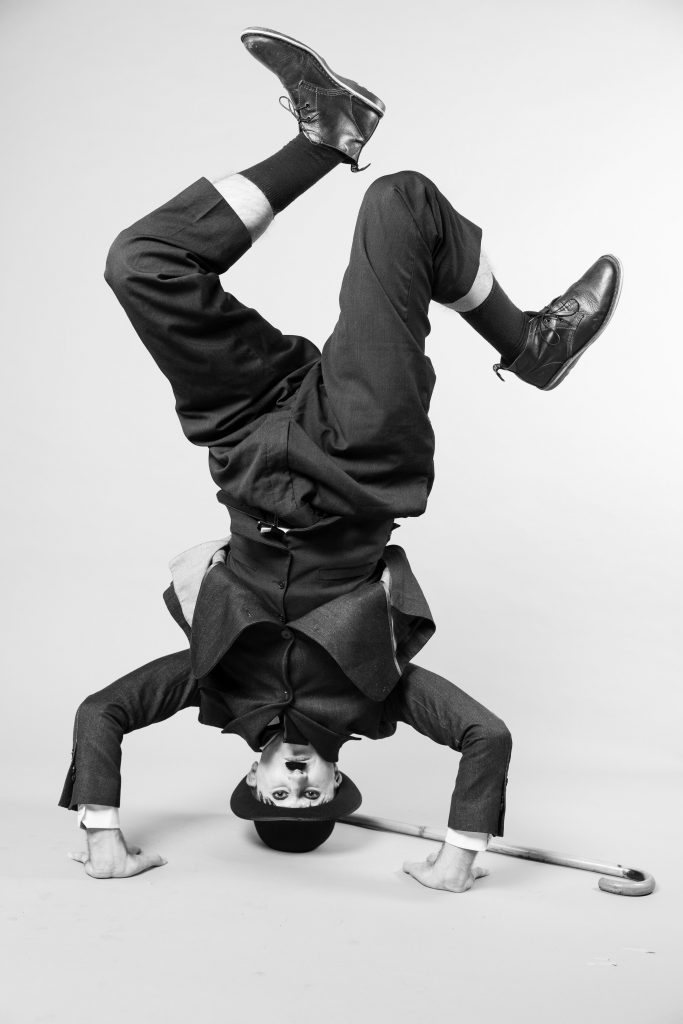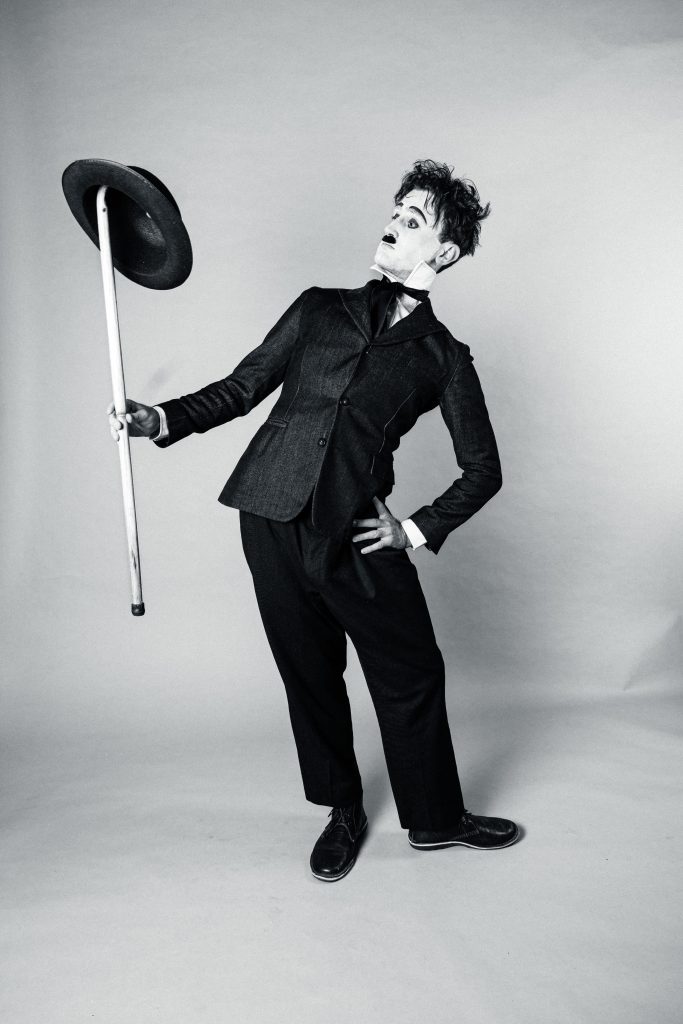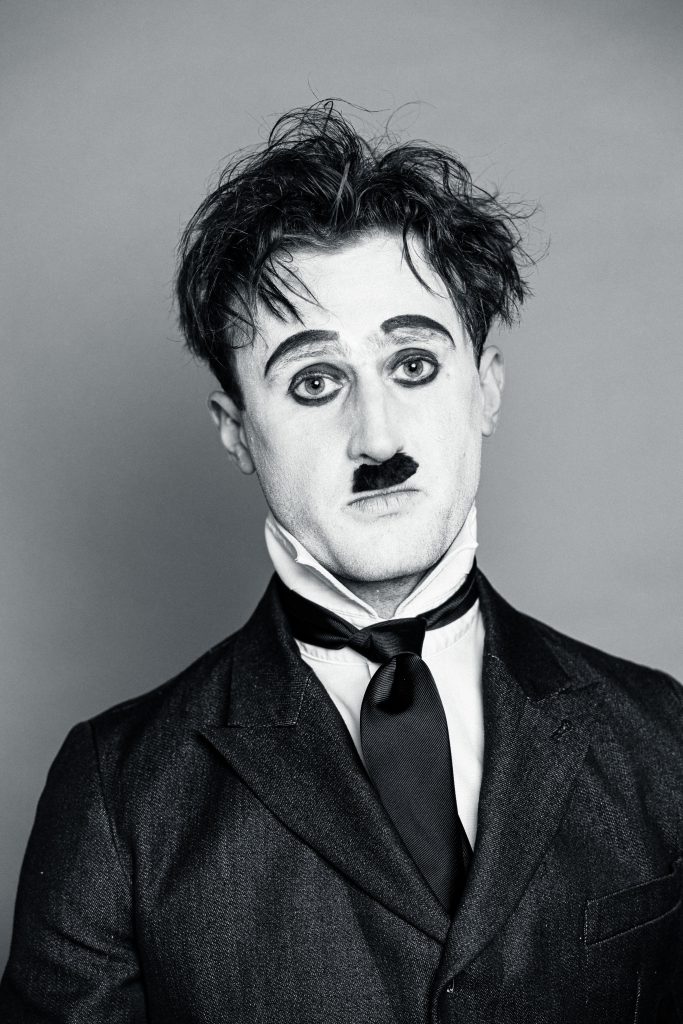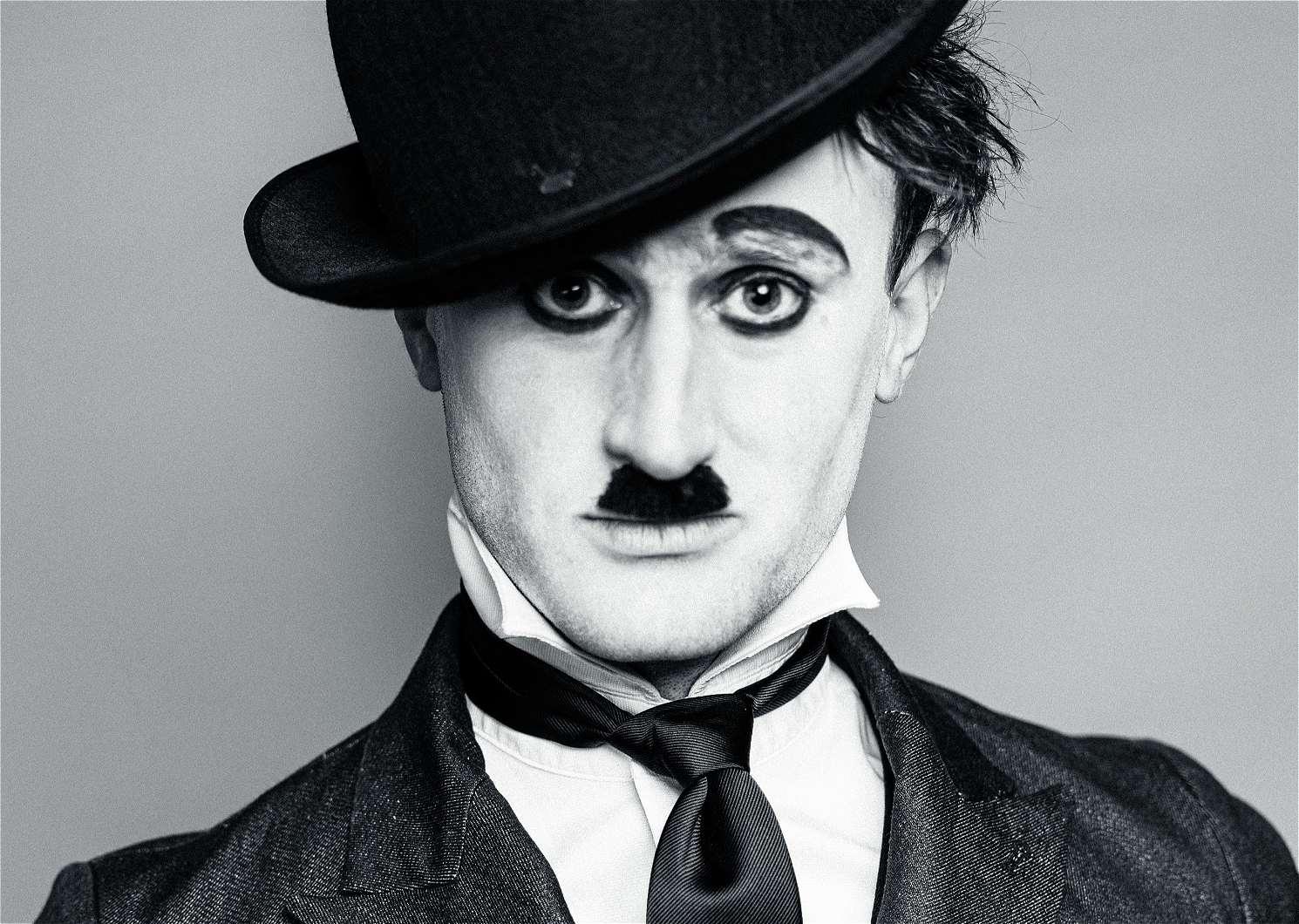Ahead of its opening at the Sydney Fringe Festival, artist Marcel Cole talks with Manan Luthra about his show Smile – The Story of Charlie Chaplin.
Manan: You’re hot off the success of The Ukulele Man, the hit show detailing the life of
George Formby. Why have you decided to cover Charlie Chaplin this time?
Marcel: After The Ukulele Man, which is a musical comedy, I wanted to do something a bit more physical. I have a good 10+ years of dance training under my belt and so I wanted to start bringing that into my work in a big way, and Charlie Chaplin seemed like the perfect challenge. Ambitious, but exciting!
I came across Charlie Chaplin in a big way while I was studying dancing in New Zealand. I found a Chaplin film collection in the University library, got a little obsessed, read his autobiography and he has been one of my biggest inspirations ever since.

When did you start preparing the show?
I was tossing up between Charlie Chaplin, Marcel Marceau, and possibly even something about Nureyev, but it didn’t take long to get excited about the possibilities of something based on Charlie Chaplin, and I actually wrote my first rough draft at the start of this year.
How did you approach studying Charlie and embodying his character? Was there
anything surprising that you learnt about him during this process?
I tend to work quite intuitively and so it’s hard to describe a specific ‘process’; it’s more like osmosis. I watch Chaplin’s films and I imitate him. But the more I watch his films and try to choreograph my own silent action, the more I become aware of the technique behind his comedies. Everything is always so simple and clear and wherever possible, the story is told through action and not information. That is one beautiful thing about the silent comedies, there is no danger of getting caught up in any intellectual dialogue and so everything stays free and light. And he is always looking straight into the camera sharing everything with the audience.
Smile is branded as a physical comedy. Can you give an insight as to what audiences
should expect?
Lots of audience interaction! But don’t worry, it will be fun haha. Think Mr Bean. It’s less about the jokes and more about funny situations. When you stop using words to make people laugh, it becomes less about being clever and a bit more about having fun, and your personality can often come out a bit more.

The Ukulele Man showcased your singing and musical skills. Will we see any of that
here?
Perhaps… It seems silly to keep skills unused and so if there’s an opportunity to add any other skills, I take it.
You’ve teamed up with director Mirjana Ristevski again. How has she contributed to
the production/rehearsal process?
Mirjana is great. She gets me on my feet running the show, which is exactly what I need. I can be very hesitant to start rehearsing until I feel the script is good enough, but the performance approaches and there comes a time when you just have to switch into the performer and start rehearsing the play no matter how the script is. It can be difficult switching between writer and performer and so it is enormously helpful to have Mirjana on board cracking the whip.

You seem to be fascinated by 20th century entertainers. Can you give any hints as to
who your next show will be about?
Very good observation. I guess you’re right. As for the next show… I want to do something a bit more original. That being said, there might be traces of other twentieth century entertainers, maybe even Elvis, but not in the way you might expect… I don’t want to say too much.
Sell Smile – The Story of Charlie Chaplin in a sentence.
If the idea of a show about Charlie Chaplin and the world of silent film tickles your imagination and gets you even just a little bit excited, please do come along… you won’t be disappointed!
